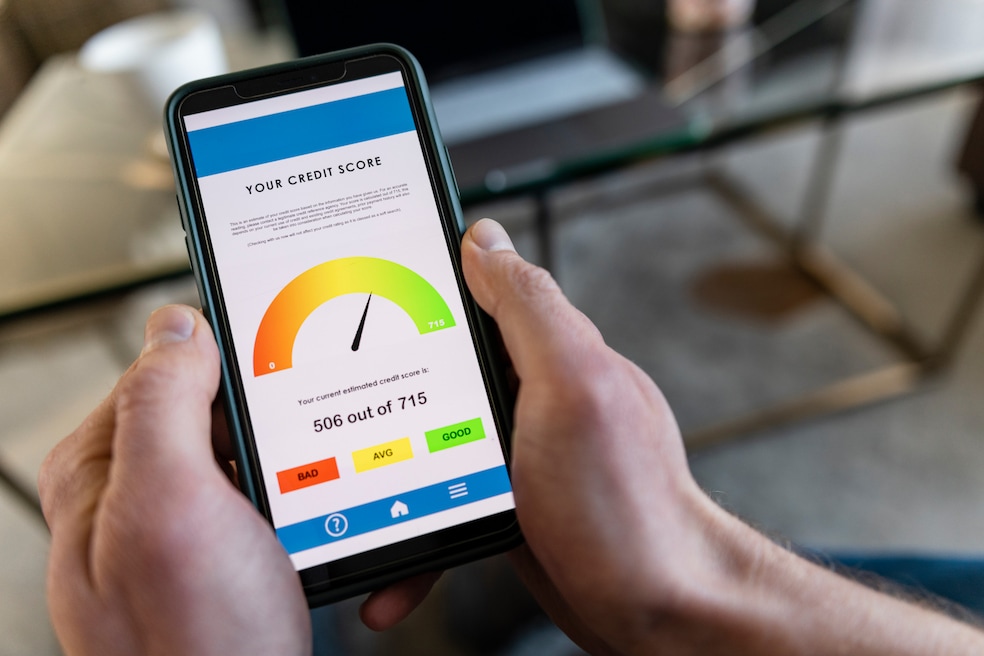Lenders hate risk. They need reassurances that the money they loan will be repaid. One of the key tools they use to assess risk is a borrower’s credit rating — a metric that helps determine whether they’re making a sound financial decision. In fact, lenders often offer lower interest rates to attract creditworthy borrowers.
What is a credit rating?
This metric measures your financial health, giving lenders a fast, reliable way to determine how likely you are to repay a loan.
The number is called a FICO score, short for Fair Isaac Corp., which developed the algorithm that weighs different factors, including your payment history. It ranges from 300 to 850, with higher scores indicating lower risk:
| RATING | CREDIT SCORE |
| Poor | Less than 580 |
| Fair | 580-669 |
| Good | 670-739 |
| Very good | 740-788 |
| Exceptional | 800-plus |
How is it calculated?
FICO scores are based on data from your personalized credit report. There are three major credit reporting agencies: Experian, TransUnion and Equifax. They look at your credit cards and at auto, personal and home loans. These agencies collect information about your credit cards and debt from banks and other financial institutions. These institutions report your financial activity to the agencies, including every time you open a credit card, pay a bill or miss a payment.
How is it weighed in a mortgage application?
FICO scores are based on five main categories of credit information, according to Experian:
- (35%) Payment history: includes missed or late payments, accounts in collections and bankruptcy filings.
- (30%) Debt: Considers your total debt, the number of accounts with balances and how much credit is available relative to your credit limits.
- (15% Length of credit history: Low-risk borrowers often have long-standing credit histories, typically spanning several years, which helps lenders assess their financial reliability.
- (10%) New credit: Low-risk borrowers do not open multiple cards in a short period of time, said Experian. There is no set length of time you should wait, said Experian. But some credit card companies will not issue a new card if the applicant has opened five cards in 24 months. Other companies limit applicants to one new card every six months, it said.
- (10%) Credit mix: A repayment history on a variety of loan types and credit sources is considered lower risk. There is no set length of time you should wait, said Experian. But some credit card companies will not issue a new card if the applicant has opened five cards in 24 months. Other companies limit applicants to one new card every six months, it said.
These categories can shift in importance if data is missing in one area. Scores may also vary slightly among the three credit bureaus.
How does a FICO score affect the interest rate you're offered?
Mortgage lenders interpret FICO scores differently. One may approve the mortgage application of a borrower with a fair score or offer lower rates for a score above a certain number. Higher scores often unlock lower interest rates — but it varies by lender. Others may deny loan applications unless the borrower has a minimum score.
Quotes for mortgage rates tend to get worse as credit scores decline because lenders add what’s called a loan-level pricing adjustment to their pricing, said Dan Green, CEO of Homebuyer.com. It's essentially a credit-risk surcharge that can add as much as 1.75 percentage points to a rate, he said.
Green noted that FICO score adjustments don't apply to government-backed loans. "It's why people with lower FICO scores tend to use FHA mortgages — they're usually a better deal," he said.
Does checking your score hurt?
No. There are two categories of credit card inquiries:
Hard inquiries are when a lender reviews your credit report when considering you for a loan or credit card application. These will lower your credit score, according to FICO. A single inquiry lowers a score by less than five points, it said. The exact impact depends on an applicant's unique credit history, it said. Inquiries have more impact if consumers have few accounts or a short credit history.
Inquiries affect credit because consumers who seek new credit accounts are riskier than those who do not, FICO said. "Statistically, people with six or more inquiries on their credit reports can be up to eight times more likely to declare bankruptcy than people with no inquiries on their reports," FICO said.
Soft inquiries aren’t tied to a loan application, such as when you pull your credit report to check its accuracy or when an employer screens a prospective employee. These do not affect the score.
How can I improve my credit score?
There are several ways you can boost your score:
- Pull your credit report and check it for accuracy. Lenders can take a long time to report the payoff of a loan or credit card. Ensuring a report is up to date can make a quick difference.
- Get current on your payments. Set up an automatic payment system so you don’t forget.
- Avoid “maxxing out” your credit cards. High balances relative to your credit limit can negatively impact your credit score.
- Don’t apply for multiple new credit cards. Lenders will wonder why you need so many accounts, especially if you’re close to your credit limits on others.
- Don't close old accounts. Closing an account will shorten your average credit history, lowering your credit score. Using the card for one small purchase and paying it back at the end of the month will boost your payment history.
Knowing what goes into a credit score is the first step toward fixing it. Taking those steps will help you achieve the goal of homeownership.
